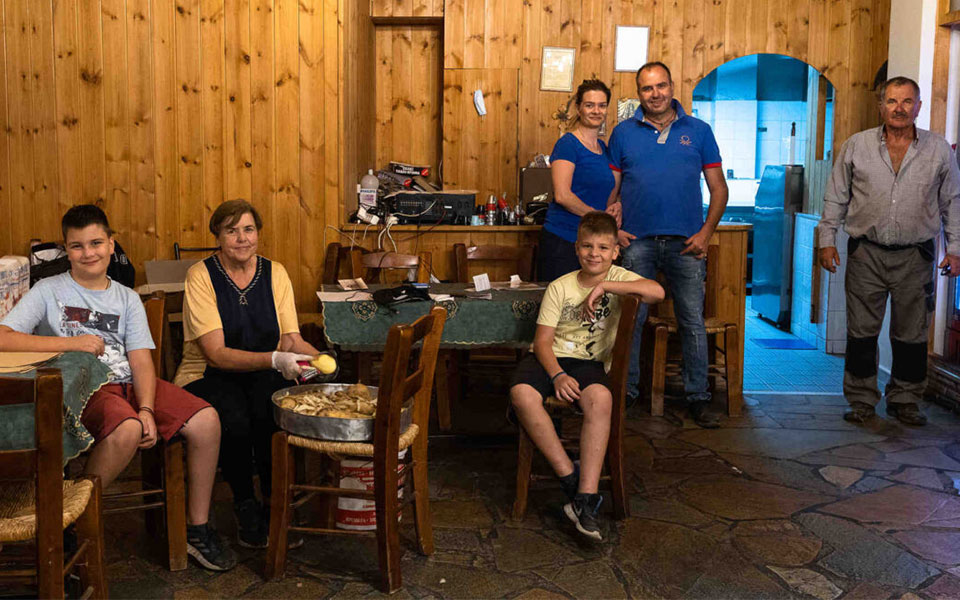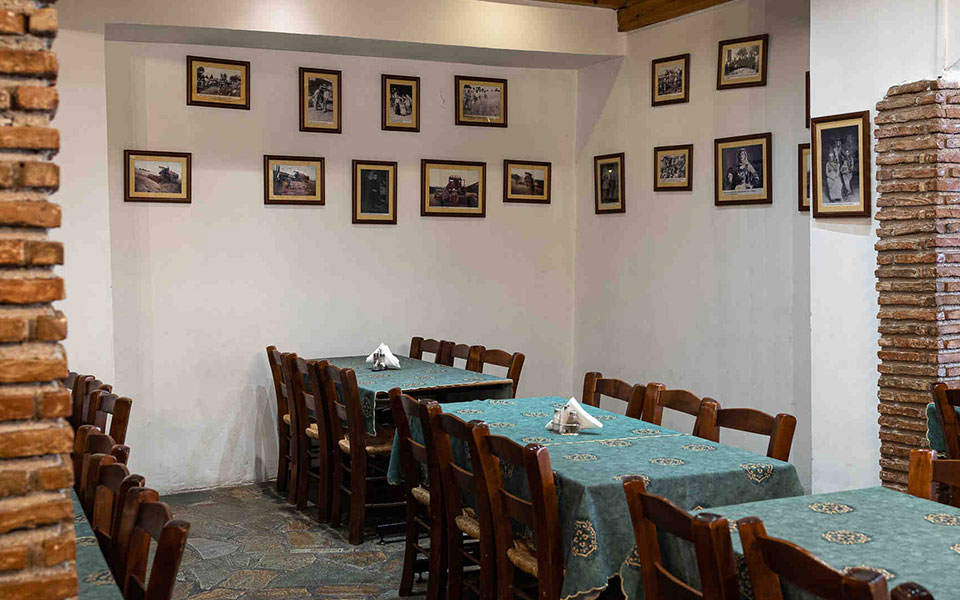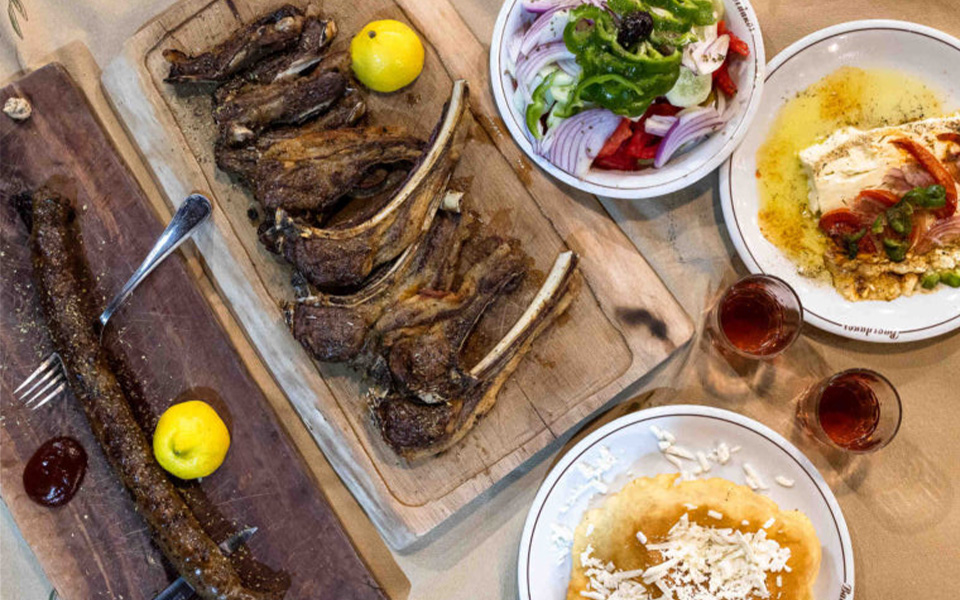The Vasilakos family have been stockbreeders and farmers since time immemorial, and their tavern serves only food from their farms: grilled ewe, rotisserie lamb, and frigadelia (lamb liver wrapped in suet), as well as homemade bread made from their own wheat, dairy products, and vegetables. Vangelis Vasilakos is more than just a taverna owner. He is first and foremost a miller, stockbreeder, and farmer. His wheat fields, which span approximately 1,250 acres, produce emmer wheat, durum wheat, gremenia soft wheat, and one or two other old local varieties, which he grinds in his stone mill (a lovely wooden structure).
He uses his own all-whole meal flour to make his famous, massive sourdough Arvanitic loaves and cheese bread. Their dense and fragrant crumb is ideal for soaking up the juices from the grilled meats on the plates.

© Christina Georgiadou
Vasilakos Taverna specializes in grilled and rotisserie meats sourced directly from their herds and farms. Grandfather Vangelis Vasilakos opened the taverna at its current location in 1936, serving grilled meats from his herds. Grandfather Vangelis also had water buffaloes, which they would slaughter each year on December 20th. They would then salt and hung the meat wrapped in parchment paper in the freezing cold – “it was cold back then in Kapandriti and Mazi, not like now when we have spring in the middle of winter”–and serve starting February 20th, at the beginning of Carnival season.
The namesake grandson does his best to follow in his grandfather’s footsteps. The ewe, a traditional Attic dish, is served here as succulent grilled ribs. However, they also make meaty and thick Arvanitic sausage (made entirely of lamb meat) using only a few spices, which is served on a wooden board with lemon wedges. Lamb chops and steaks, all charcoal-grilled, are served on wooden boards, along with hand-cut fried potatoes from the family farm. This time of year, seasonal salads include cabbage and lettuce salad from the family vegetable garden, as well as boiled wild greens from the surrounding area, served with oil and lemon.

© Christina Georgiadou
On weekends, the large rotisserie is filled with lamb and kokoretsi, and on weekdays, with kontosouvli. Again, the meat comes from the family herds, as do many other items on the menu, including the feta, which is served plain or saganaki-style and bathed in olive oil from the family grove, the tzatziki made with sheep’s milk yogurt, the spicy cheese dip made from feta and yogurt mixed together, and, of course, the frigadelia.
“In the old days, you know, frigadelia were served at all the celebrations, from weddings and baptisms to major agricultural events,” says Vangelis Vasilakos. “It was the first meze we prepared for every festive occasion. People used to celebrate back then; families and friends would get together, and no matter how much work there was, it was all a celebration. Now we’ve somehow closed ourselves off and no longer enjoy what we do.”
This article was previously published in Greek at gastronomos.gr.












